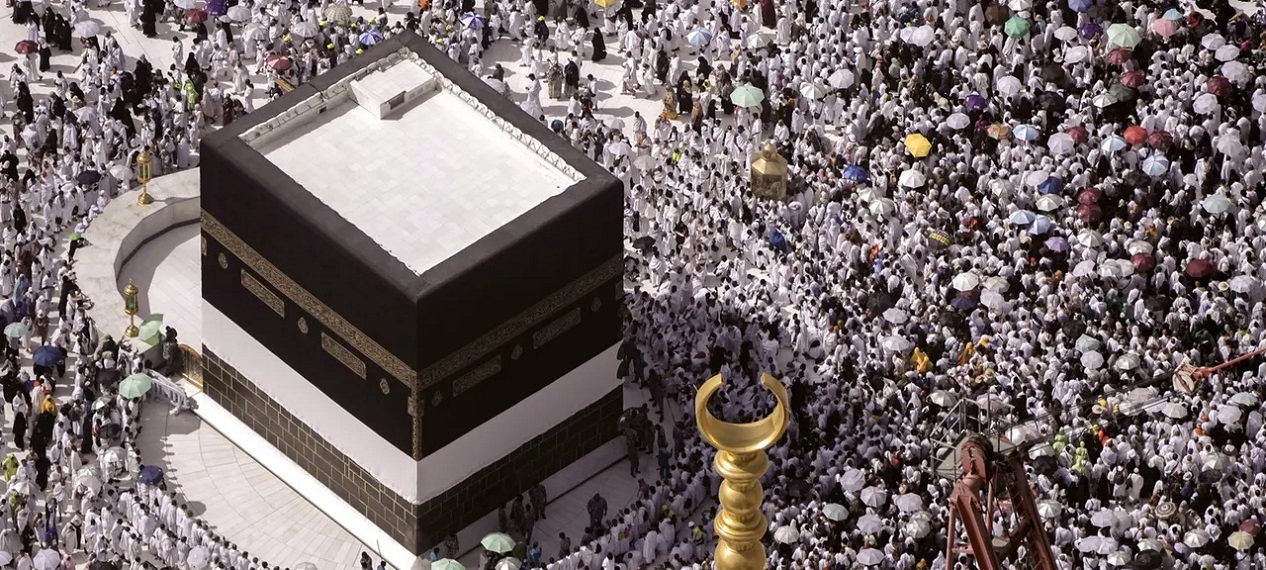The Muslim pilgrimage to Mecca, known as the Hajj, will begin this evening, for the first time since the beginning of the pandemic, without COVID restrictions and participation limits. This year, 2.6 million believers are expected to attend.
This year’s pilgrimage to Mecca, the holiest city in Islam and the birthplace of the Prophet Muhammad (ca. 570-632) will begin this evening. It will be the first to take place without participation restrictions and COVID-related regulations since the beginning of the pandemic.
According to the Saudi Ministry of Hajj, about 2.6 million Muslim men and women from all over the world are expected to visit the holy city to carry out the prescribed rituals at the Kaaba sanctuary and other sites near Mecca until Saturday, July 1.
This high number of visitors reflects the economic and cautious political opening of the ultra-conservative Kingdom of Saudi Arabia. For the first time this year, women are allowed to perform the pilgrimage without a male guardian.
Reduced participation in previous years
Prior to the start of the pandemic, around 2.5 million Muslims from around the world participated in the Hajj in 2019. However, in the following two years, Saudi Arabia drastically reduced the numbers of pilgrims. In 2020, only 10,000 believers were allowed to take part in the Hajj, and in 2021, this number rose to 60,000.
In addition, strict regulations applied. Only believers residing in Saudi Arabia and between the ages of 18 and 65 were allowed to participate. In 2022, nearly 900,000 pilgrims were allowed to travel to Mecca and to the Prophet’s grave in Medina, including around 780,000 Muslims from abroad – provided they were vaccinated, under the age of 65, and presented a negative COVID test.
Witnessing the largest Hajj pilgrimage in history
The Hajj in Saudi Arabia began early Sunday with the Tawaf – the circumambulation of the cube-shaped Kaaba, the black draped cube in Mecca, which millions of Muslims face every day during prayer.
“This year we will witness the largest Hajj pilgrimage in history,” said a representative of the Ministry of Hajj and Umrah on Sunday. “The number will exceed 2.5 million pilgrims.” By late Friday evening, 1.6 million foreign guests had already arrived.
Eid al-Adha begins on Wednesday
On Wednesday, the third day of Hajj, Eid al-Adha, the most important festival in Islam, will also begin. It lasts for four days, and many Muslims around the world slaughter sacrificial animals. The ritual commemorates the sacrifice of Ibrahim (Abraham), who was willing to sacrifice his son at God’s command, as mentioned in the Quran and the Bible.
The pilgrimage to Mecca in the last month of the Islamic calendar follows the example of the Prophet Muhammad in its rituals. It is one of the “five pillars of Islam” and, therefore, a central religious duty. Every adult Muslim should complete it once in their life, provided their health and financial situation allow it.













































